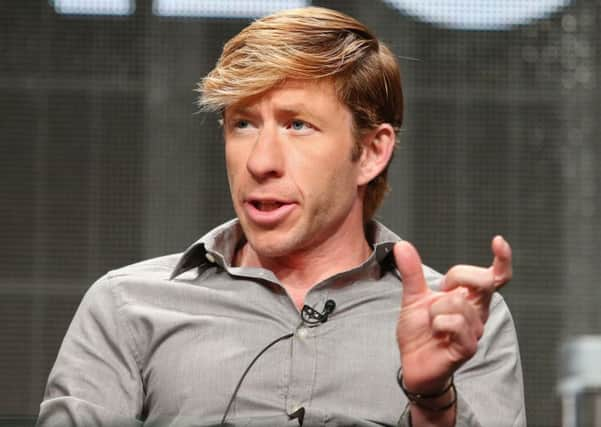Book review: Why We Sleep - The New Science of Sleep and Dreams, by Matthew Walker


There’s a line of non-fiction books which advance their subjects as having changed the world. Recent examples include cod, salt, cooked food, potatoes, tea, sugar and coffee. Given that sleep occupies a third of our lives and a lack of it kills within weeks, neuroscientist Matthew Walker’s claims for its central importance in Why We Sleep stand as good a chance as any of bearing scrutiny. Early on he sets out his stall with the following: “What if the real question is: why did life even bother to wake up? Considering how biologically damaging the state of wakefulness can often be, that is the true evolutionary puzzle here, not sleep.” So there we have it: consciousness itself could be no more than a risky afterthought. Cogito ergo sum? More like somnio ergo sum.
Walker’s book begins as an enjoyable tour through the history of sleep science. We hear of Kleitman and Richardson’s six week stay inside Mammoth Cave in Kentucky, where it was first demonstrated that the body’s internal clock ran in circadian (nearly 24-hour) cycles.
Advertisement
Hide AdHe goes on to describe the discovery of REM and NREM sleep, before moving on to sleep’s myriad benefits: “Scientists have discovered a revolutionary new treatment that makes you live longer. It enhances your memory and makes you more creative. It makes you look more attractive. It keeps you slim and lowers food cravings. It protects you from cancer and dementia. It wards off colds and the flu. It lowers your risk of heart attacks and stroke, not to mention diabetes. You’ll even feel happier, less depressed, and less anxious. Are you interested?” I have a feeling all these benefits have been claimed for exercise and a healthy weight and diet, but still: it’s a pretty impressive list.
Most compelling are his arguments against early school start times (particularly in the US), where teenage brains are being systematically sleep-deprived, and his description of the effects of sleep deprivation on the body are excellent, and should be required reading for anyone who thinks they can get by with less of it.
The book does have its flaws, however. There are instances where Walker cites poor quality or low-powered studies, or extrapolates freely from their conclusions. For instance, referring to a trial of elderly people woken up by alarm clocks, he states they “will suffer a spike in blood pressure and a shock acceleration in heart rate.” Following this he suggests: “Think of the multiplicative abuse your heart and nervous system will suffer across a life span.” And yet the trial as presented showed absolutely no evidence for this.
Then the central question: how many hours of sleep are optimal? Of the observed rise in mortality rate beyond nine hours Walker states: “the causes of death in individuals sleeping nine hours or longer include infection (eg. pneumonia) and immune-activating cancers… It is simply that some illnesses, such as cancer, can be too powerful for the mighty force of sleep to overcome.” Yet this is not backed up by reviews of the evidence, which have concluded that lack of sleep and excess sleep are independent risk factors in themselves: that even after individuals with major co-morbidities were excluded, there was still a rising mortality rate at the extremes.
I would have liked to see more description of Walker’s day to day work in the sleep laboratory, and the clinical conditions are rather skimmed over. He discusses the use of Prazosin for the treatment of nightmares in PTSD (post-traumatic stress disorder), and I understand he has a personal interest in this because it fits with his neurobiological model of REM sleep as overnight therapy. Nevertheless, this blood pressure medication is not licensed for the condition in the UK, and he should perhaps have mentioned the far greater evidence and efficacy overall for using SSRIs (anti-depressant medication).
He contends that the functions of REM sleep lie in procedural memory, creativity and emotional wellbeing, and these arguments are well presented. Within this Walker includes his own theory: that REM was part of a “re-engineering of sleep... that rocketed homo sapiens to the top of evolution’s lofty pyramid.” This is an interesting idea, but with its inclusion I would have liked some of the other competing theories for REM function (eg. predawn warming of the brain, threat rehearsal) to have had an airing as well.
Advertisement
Hide AdA little more discussion of the culture and history of sleep, and especially of dreams, would have brightened up what is sometimes a rather dry factual account. However, the book contains some fascinating ideas, and Walker’s suggestions for how society and government and educational establishments might change their attitude to sleep are laudable. And yes: he left me more convinced than ever of sleep’s importance.
*Why We Sleep: The New Science of Sleep and Dreams, by Matthew Walker, Allen Lane, 368pp, £20
*Rob Ewing is an Edinburgh-based GP. His debut novel The Last of Us is published by Borough Press.